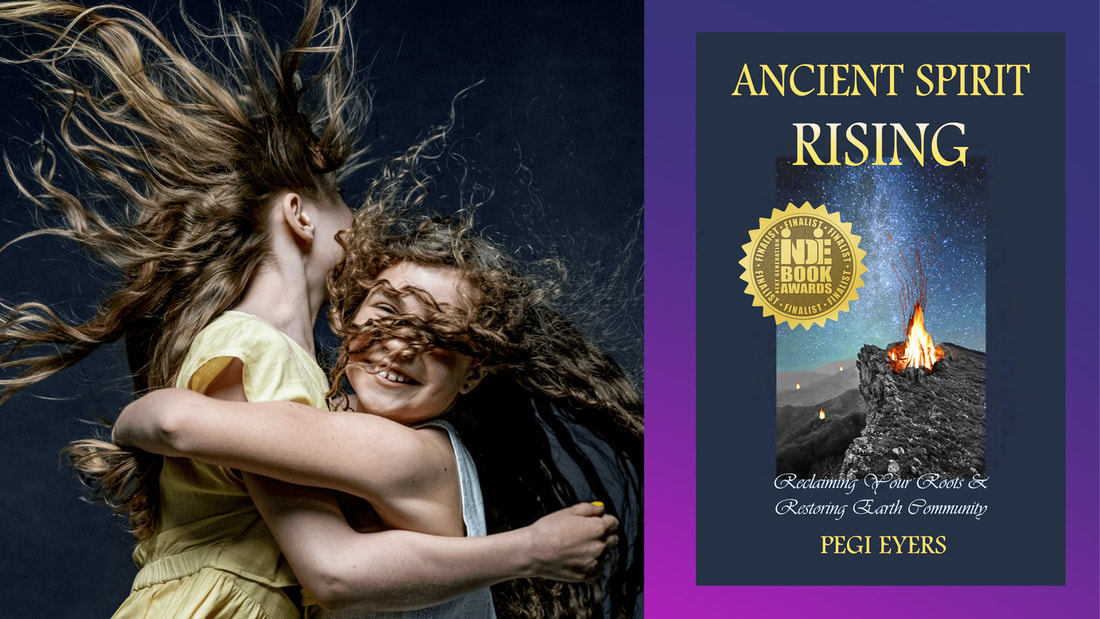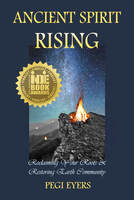A set of beautiful reminders, on choosing detachment over co-dependency~!
Detachment is simply watching the events that are unfolding around you, getting involved only when your journey is part of the experience.
Detachment promises quiet contentment.
Detachment is making no one a project.
Detachment means taking no hostages.
Detachment means giving up outcomes.
Detachment is understanding that we are never the cause of someone’s else’s actions.
Detachment is getting over “it,” whatever “it” is.
Detachment frees up our time.
To detach is not unloving. It’s giving space to our loved ones to grow. It’s the kindest gift we can give a friend. It’s the kindest gift we can give to ourselves.
Detachment simplifies our life.
Detachment is an acquired habit.
Detachment means freedom from obsession.
Detachment is knowing that what others do, is not a reflection on you.
Detachment is not making a big deal of situations, even complicated ones.
Detachment empowers us.
Detachment frees us from over-reaction.
Detachment may mean doing nothing.
Detachment may be remaining quiet.
Detachment is not acquiescence.
Keeping life simple is one of the hallmarks of detachment. A sense of empowerment is a guarantee when we detach.
Detachment is disengagement, nothing more.
Detachment means not letting the behavior of others cause you to suffer.
Detachment can be triggered by the reminder “don’t go there.”
Detachment is not letting someone else’s past determine your present.
Detachment relies on the “little willingness” to surrender.
Detachment is noticing people without judgement.
Detachment is freedom from chaos.
Detachment is “moving away” from a conversation that begins to irritate.
Detachment is knowing that the mind can change, if what you say to the mind changes.
Detachment is letting decisions that need to be made by others be only theirs.
Choice is a wonderful thing. Choosing wisely is even better. A wise choice, often, is to do nothing.
Detachment is “keeping it simple” – staying out of situations that don’t directly involve you.
Detachment is having your life be about you, not other people.
Detachment is living in our adult observer role.
Detachment is not being dependent on others for good feelings.
Detachment is taking responsibility for your own life.
Detachment means not being a victim anymore.
Detachment is living one’s own life, while letting friends and family live as they choose.
Detachment is never letting someone else control how we think, feel, or behave.
Detachment is letting go of fear over other’s behavior.
Detachment is freedom from relying on others to complete our lives.
PAUSE AND REFLECT
Let the chaos that others create be theirs to resolve. It’s OK to leave a room or conversation if the tension is rising. Let’s not let anyone else determine how we feel. The past is gone. Don’t try to resurrect it. Detachment, when fully expressed, promises peacefulness.
Detachment is a gift that we receive from our relationships well-lived.
Detachment is knowing that others’ criticisms are about them.
Detachment is not letting the mood swings of others determine your own mood.
Detachment is practicing the awareness that changing our thoughts can produce changed feelings.
Detachment is knowing that happiness is the byproduct of how we live our lives, not how others are living theirs.
Detachment is not needing attention from others to feel OK.
Detachment is being able to care deeply about a situation or another person from an objective point of view.
Detachment is not creating or preventing a crisis when it is clearly not our business to be involved.
Detachment is letting others have their own opinions.
Detachment is being able to let others journey, wherever they need to go.
Detachment is no longer succumbing to the suggestions of others, when they are not right for us.
Detachment is being able to walk away from situations that are not helpful to us.
Detachment is knowing what is not your business.
Detachment is letting others take care of their own affairs.
Attachment to people deadlocks our growth.
Detachment can be as simple as breathing and walking away.
Detachment means giving up “hostages.”
Detachment is letting the outcome of another’s behavior be his or her problem.
Detachment is doing the “next right thing” without focusing on the outcome.
Detachment is realizing that our lives are not dependent on what others are doing.
Detachment is showing by example, not words, how our lives can change.
Detachment is looking at life from a distance.
Being a living example of detachment is being a great teacher.
PAUSE AND REFLECT
Doing the next right thing is not a mystery. Ever. Give up seeking to be the center of someone else’s life. Now! To stand apart from our friend does not mean that we aren’t joined in love.
Detachment is knowing that you are not the center of anyone else’s life.
Detachment means following your own heart’s desire.
Detachment is relinquishing the role of being someone else’s Higher Power.
Detachment is not being diminished by the behavior of others.
Detachment is keeping your feelings separate from what others are doing.
Detachment is taking responsibility for your feelings.
Detachment means no long harboring thoughts of “attachment.”
Detachment is no longer being unfairly treated.
Detachment is keeping your feelings separate from what others are saying and doing.
Detachment means no long adjusting our lives to the whims of others.
PAUSE AND REFLECT
Your life is never, ever dependent on what someone else is doing. This is a good thing! Letting the whims of others control you means you will live a very uncertain, generally troubled life. Do you want that? Being solely responsible for how you feel is an adjustment at first, perhaps, but then it’s empowering.
Detachment from others can be nurtured by strengthening our attachment to our personal hopes and dreams.
Detachment is not interfering with what another person should do.
Detachment is refusing to let our interactions define us.
Detachment means no longer needing to be in charge of anything, not even our own lives.
Detachment is not disinterest, but that might be the first step.
Detachment means no longer leading other’s lives.
Detachment is respecting the boundaries between yourself and others.
Detachment is freedom from the desire to get someone back.
Detachment is the freedom to not be angry or sad.
Detachment is giving up control, even the thought of it!
PAUSE AND REFLECT
Backing away from an invitation to get involved in the affairs of someone else is smart. What someone else is doing or how they treat us has nothing to do with who we are. Witnessing for others may well be the kindest gift we can offer. That act frees us from any form of interference. Get over getting someone back! Now. We will never find peace unless we do.
Detachment is not letting anyone else decide how you feel.
Detachment is freedom from saying “I told you so.”
Detachment is being able to put yourself at the top of the list of “who needs care.”
Detachment is letting our friends have whatever kind of day they chose to have.
Detachment means acknowledging and even celebrating another’s unique journey.
Detachment is no longer “dancing” around someone else’s life.
Detachment is no longer needing to assuage anyone else’s anger.
Detachment is being able to claim our own identities.
Detachment is accepting what we cannot change, and changing only what we can.
Detachment is not taking anyone else’s behavior personally.
PAUSE AND REFLECT
Caring for ourselves, rather than others, is not being selfish. Giving up control over someone else takes more than just wishing it. Much more. Everyone’s journey is unique to them. When we interfere we delay their process. Letting someone else be angry is a sign of growth and freedom.
Detachment is no longer waiting for the other shoe to drop.
Detachment is letting things rest.
Detachment is being able to move our minds away from the unhealthy places they want to go.
Detachment is being able to stop our minds in mid-thought when the thoughts are not beneficial.
Detachment is no longer living in the tumultuous spaces of other people’s minds.
Detachment doesn’t mean separation from our loved ones. It means acceptance of who and what they are.
Detachment is a gift to one and all.
Detachment never means being rude or dismissive.
Detachment is a growth opportunity that we can claim every day of our lives.
Detachment is not to be confused with disloyalty.
PAUSE AND REFLECT
What a relief it is to let things be as they are. Our minds only go where we give them permission to go. Accepting others as they are feels like a holiday. The practice of detaching does not mean being rude. We can still be loyal to our friends and loved ones and detach from them.
Detachment is one of the most loving of all our actions.
Detachment empowers.
Detachment offers us freedom from blame.
Detachment is like a breath of fresh air.
Unless we practice detachment we will find ourselves reacting many times a day.
When we practice detachment, we serve as great teachers to others.
The most loving thing we can do is let another person be free: that’s detachment.
Let go of the opinions of others. Let go of the effect of your behavior on others. Let go of the outcome of your actions and the many situations concerning you and your loved ones.
Detachment is practiced moment by moment.
Accountability, ours and others’, is the hallmark of detachment.
Detachment is the way to cultivate peace, one moment at a time.
Those who are hardest to detach from, are our best teachers.
Detaching from others is one of the most rewarding and revealing changes we can ever make.
Making the decision to detach from a loved one may well be the most important, as well as the kindest, gift we can give ourselves. Ever.
Detachment is a swift and sure way of expressing unconditional love.
Learning to detach is a process. It moves faster for some than for others. But the pace is not important.
Detachment is a tool that can be practiced with, and by everyone.
PAUSE AND REFLECT
One moment at a time – that’s all we have. And that’s all the time we need to detach. Being accountable for ourselves only, is the best assurance of living detachment. Learning to detach from our most difficult companions pays huge dividends. Detachment may not look like unconditional love, but it is. Making someone a hostage makes us a hostage too.
Detachment promises quiet contentment.
Detachment is making no one a project.
Detachment means taking no hostages.
Detachment means giving up outcomes.
Detachment is understanding that we are never the cause of someone’s else’s actions.
Detachment is getting over “it,” whatever “it” is.
Detachment frees up our time.
To detach is not unloving. It’s giving space to our loved ones to grow. It’s the kindest gift we can give a friend. It’s the kindest gift we can give to ourselves.
Detachment simplifies our life.
Detachment is an acquired habit.
Detachment means freedom from obsession.
Detachment is knowing that what others do, is not a reflection on you.
Detachment is not making a big deal of situations, even complicated ones.
Detachment empowers us.
Detachment frees us from over-reaction.
Detachment may mean doing nothing.
Detachment may be remaining quiet.
Detachment is not acquiescence.
Keeping life simple is one of the hallmarks of detachment. A sense of empowerment is a guarantee when we detach.
Detachment is disengagement, nothing more.
Detachment means not letting the behavior of others cause you to suffer.
Detachment can be triggered by the reminder “don’t go there.”
Detachment is not letting someone else’s past determine your present.
Detachment relies on the “little willingness” to surrender.
Detachment is noticing people without judgement.
Detachment is freedom from chaos.
Detachment is “moving away” from a conversation that begins to irritate.
Detachment is knowing that the mind can change, if what you say to the mind changes.
Detachment is letting decisions that need to be made by others be only theirs.
Choice is a wonderful thing. Choosing wisely is even better. A wise choice, often, is to do nothing.
Detachment is “keeping it simple” – staying out of situations that don’t directly involve you.
Detachment is having your life be about you, not other people.
Detachment is living in our adult observer role.
Detachment is not being dependent on others for good feelings.
Detachment is taking responsibility for your own life.
Detachment means not being a victim anymore.
Detachment is living one’s own life, while letting friends and family live as they choose.
Detachment is never letting someone else control how we think, feel, or behave.
Detachment is letting go of fear over other’s behavior.
Detachment is freedom from relying on others to complete our lives.
PAUSE AND REFLECT
Let the chaos that others create be theirs to resolve. It’s OK to leave a room or conversation if the tension is rising. Let’s not let anyone else determine how we feel. The past is gone. Don’t try to resurrect it. Detachment, when fully expressed, promises peacefulness.
Detachment is a gift that we receive from our relationships well-lived.
Detachment is knowing that others’ criticisms are about them.
Detachment is not letting the mood swings of others determine your own mood.
Detachment is practicing the awareness that changing our thoughts can produce changed feelings.
Detachment is knowing that happiness is the byproduct of how we live our lives, not how others are living theirs.
Detachment is not needing attention from others to feel OK.
Detachment is being able to care deeply about a situation or another person from an objective point of view.
Detachment is not creating or preventing a crisis when it is clearly not our business to be involved.
Detachment is letting others have their own opinions.
Detachment is being able to let others journey, wherever they need to go.
Detachment is no longer succumbing to the suggestions of others, when they are not right for us.
Detachment is being able to walk away from situations that are not helpful to us.
Detachment is knowing what is not your business.
Detachment is letting others take care of their own affairs.
Attachment to people deadlocks our growth.
Detachment can be as simple as breathing and walking away.
Detachment means giving up “hostages.”
Detachment is letting the outcome of another’s behavior be his or her problem.
Detachment is doing the “next right thing” without focusing on the outcome.
Detachment is realizing that our lives are not dependent on what others are doing.
Detachment is showing by example, not words, how our lives can change.
Detachment is looking at life from a distance.
Being a living example of detachment is being a great teacher.
PAUSE AND REFLECT
Doing the next right thing is not a mystery. Ever. Give up seeking to be the center of someone else’s life. Now! To stand apart from our friend does not mean that we aren’t joined in love.
Detachment is knowing that you are not the center of anyone else’s life.
Detachment means following your own heart’s desire.
Detachment is relinquishing the role of being someone else’s Higher Power.
Detachment is not being diminished by the behavior of others.
Detachment is keeping your feelings separate from what others are doing.
Detachment is taking responsibility for your feelings.
Detachment means no long harboring thoughts of “attachment.”
Detachment is no longer being unfairly treated.
Detachment is keeping your feelings separate from what others are saying and doing.
Detachment means no long adjusting our lives to the whims of others.
PAUSE AND REFLECT
Your life is never, ever dependent on what someone else is doing. This is a good thing! Letting the whims of others control you means you will live a very uncertain, generally troubled life. Do you want that? Being solely responsible for how you feel is an adjustment at first, perhaps, but then it’s empowering.
Detachment from others can be nurtured by strengthening our attachment to our personal hopes and dreams.
Detachment is not interfering with what another person should do.
Detachment is refusing to let our interactions define us.
Detachment means no longer needing to be in charge of anything, not even our own lives.
Detachment is not disinterest, but that might be the first step.
Detachment means no longer leading other’s lives.
Detachment is respecting the boundaries between yourself and others.
Detachment is freedom from the desire to get someone back.
Detachment is the freedom to not be angry or sad.
Detachment is giving up control, even the thought of it!
PAUSE AND REFLECT
Backing away from an invitation to get involved in the affairs of someone else is smart. What someone else is doing or how they treat us has nothing to do with who we are. Witnessing for others may well be the kindest gift we can offer. That act frees us from any form of interference. Get over getting someone back! Now. We will never find peace unless we do.
Detachment is not letting anyone else decide how you feel.
Detachment is freedom from saying “I told you so.”
Detachment is being able to put yourself at the top of the list of “who needs care.”
Detachment is letting our friends have whatever kind of day they chose to have.
Detachment means acknowledging and even celebrating another’s unique journey.
Detachment is no longer “dancing” around someone else’s life.
Detachment is no longer needing to assuage anyone else’s anger.
Detachment is being able to claim our own identities.
Detachment is accepting what we cannot change, and changing only what we can.
Detachment is not taking anyone else’s behavior personally.
PAUSE AND REFLECT
Caring for ourselves, rather than others, is not being selfish. Giving up control over someone else takes more than just wishing it. Much more. Everyone’s journey is unique to them. When we interfere we delay their process. Letting someone else be angry is a sign of growth and freedom.
Detachment is no longer waiting for the other shoe to drop.
Detachment is letting things rest.
Detachment is being able to move our minds away from the unhealthy places they want to go.
Detachment is being able to stop our minds in mid-thought when the thoughts are not beneficial.
Detachment is no longer living in the tumultuous spaces of other people’s minds.
Detachment doesn’t mean separation from our loved ones. It means acceptance of who and what they are.
Detachment is a gift to one and all.
Detachment never means being rude or dismissive.
Detachment is a growth opportunity that we can claim every day of our lives.
Detachment is not to be confused with disloyalty.
PAUSE AND REFLECT
What a relief it is to let things be as they are. Our minds only go where we give them permission to go. Accepting others as they are feels like a holiday. The practice of detaching does not mean being rude. We can still be loyal to our friends and loved ones and detach from them.
Detachment is one of the most loving of all our actions.
Detachment empowers.
Detachment offers us freedom from blame.
Detachment is like a breath of fresh air.
Unless we practice detachment we will find ourselves reacting many times a day.
When we practice detachment, we serve as great teachers to others.
The most loving thing we can do is let another person be free: that’s detachment.
Let go of the opinions of others. Let go of the effect of your behavior on others. Let go of the outcome of your actions and the many situations concerning you and your loved ones.
Detachment is practiced moment by moment.
Accountability, ours and others’, is the hallmark of detachment.
Detachment is the way to cultivate peace, one moment at a time.
Those who are hardest to detach from, are our best teachers.
Detaching from others is one of the most rewarding and revealing changes we can ever make.
Making the decision to detach from a loved one may well be the most important, as well as the kindest, gift we can give ourselves. Ever.
Detachment is a swift and sure way of expressing unconditional love.
Learning to detach is a process. It moves faster for some than for others. But the pace is not important.
Detachment is a tool that can be practiced with, and by everyone.
PAUSE AND REFLECT
One moment at a time – that’s all we have. And that’s all the time we need to detach. Being accountable for ourselves only, is the best assurance of living detachment. Learning to detach from our most difficult companions pays huge dividends. Detachment may not look like unconditional love, but it is. Making someone a hostage makes us a hostage too.
Detaching from our companions does not mean discounting them, dismissing them, or rejecting them. Keeping it simple helps us detach from others.
Detachment is how we release ourselves from responsibility for others.
Perfecting detachment is a life-long journey, but prayer will help.
Detachment from others doesn’t preclude joining with them in a healthy way on occasion.
Silence can be golden, and detachment is the method.
Detachment is most likely a learned trait.
Asking a friend to witness our practice of detachment is an interesting and worthwhile opportunity for both parties.
Detachment is not a “one-time only” solution.
There is no timeline in learning how to detach. We have all the time we need. But the more quickly we begin the practice, the more peaceful our lives will be. Progress, not perfection, is the outcome we should seek. Dismissing or discounting someone is definitely not detachment. Praying for the willingness to let others have their own journeys is the first step to letting go of them. When in doubt about how to respond in any situation, choose silence for 60 seconds at least.
Detachment is only of many choices.
Detachment, when practiced honestly, doesn’t allow criticism.
Detachment first requires a new way of thinking.
Detachment implies giving up control.
Fear may keep us from detaching.
Unconditional love can be packaged in many ways. Detachment may not seem like one of them, but it is.
Saying “I can choose peace instead of this,” is one way of embracing detachment.
Not reacting to others is a demonstration of detachment.
Detachment does not mean disavowal of others.
Detachment from others is the opposite of being obsessed.
PAUSE AND REFLECT
Detachment is a choice. Unconditional love is a choice. Giving up control is a choice. Being afraid is a choice. Choosing to be peaceful is a choice. Choosing to act, rather than react, is a choice. Trusting our companions to live their own lives is a choice.
Detachment reduces tension immediately.
Detaching from our family members allows them to grow in ways unique to them.
Detachment encourages everyone to be more responsible.
Our willingness to detach from our loved ones demonstrates to them that we trust them.
Detachment might first begin with a vision of doing it successfully.
Surrendering control is another way to think of detachment.
The freedom to live our lives can’t be accomplished unless we detach ourselves from the lives of others.
Detachment is a loving choice, one of many.
Maintaining healthy boundaries is key to healthy relationships, knowing when to detach is crucial to the process.
PAUSE AND REFLECT
The power of the imagination can’t be overstated. Visualize yourself being lovingly detached first.
There is no race to the finish line.
We are all works in progress.
Your assignments cannot be fulfilled if your attention is on someone else, rather than the work you are here to perform.
Detachment will require major changes for some, minor changes for other.
Detaching from the chaos around us by seeking the silence within, creates healing in us and in others too, in time.
The most effective way of keeping our focus where it belongs is detaching from others.
If we fail to detach from a person who is always in turmoil, we are likely to blame them for our unhappiness.
Every moment provides a chance for us to make a healthy choice, period. Detachment is one of the healthiest of all.
Prayer is effective when honing the detachment skill
.
Watching others will reveal to us many who practice detachment.
Detaching from the struggles of our loved ones does not preclude witnessing their humanity.
Detachment might be interpreted as, “I accept you as you are.”
PAUSE AND REFLECT
Praying for willingness in every attempt to change our behavior is the first and most important step. Blaming others for our unhappiness is so tempting. We keep our focus where it belongs. There is little doubt about where that is. When the chaos calls, leave. Seeking the silence of our inner space is the solution when others are trying to entrap us in their madness.
The commitment to detachment prevents the compulsion to react.
Are you choosing to detach when the opportunity presents itself today?
There is a subtle distinction between joining with those on our journey, and detaching from them when we need to.
There is one sure way to experience peace: detach from the upheavals of others.
The act of detachment precludes criticism.
Fear propels us to attach ourselves to others.
Do we want freedom to grow, or a life that’s small? How we relate to others determines this.
Making the decision to change how we think can open the door to the practice of detachment.
Appreciating the gift and the power of detachment is certain to lead us to a simpler life.
Detaching from the chaos of other’s lives, may not look like love, but it is.
PAUSE AND REFLECT
Everyday is rife with choices. Let’s be careful regarding those that we make. We are the thinkers, the creators, of our thoughts. Thoughts don’t mysteriously appear in our minds. We change them if we are not feeling peaceful. The chaos that others choose to experience doesn’t have to garner our attention. Unconditional love has many expressions. Detachment is one of them. We cling to people when we are afraid. Seek the Great Mystery instead, in those moments.
Detaching from our friends spurs some of them on to be more responsible.
A sure indication that we have not embraced detachment is when our focus is too much on someone else.
Detachment doesn’t have to mean disinterest.
Accepting detachment as a loving act seems strange to some. Surrendering your control over life, your own life and the lives of others, is a great demonstration of detachment.
Our willingness to detach from others is enhanced if we develop trust in a higher power.
Dreams can help us in our development of any skill. Detachment is one of them.
Making the commitment to detach from our loved ones (and all others too) is a big change for many of us.
Being willing to practice the art of detachment is what promises us the freedom to grow.
Embracing silence in the face of turmoil is an act of detachment.
Sharing a path in life doesn’t mean stepping on each other’s toes.
The recognition of another person’s need for space helps us to develop our own commitment to the healing value of detachment.
Sometimes we resist detaching from the problems of others because reacting feels so good.
If we want freedom from our addiction to controlling others, prayer is the solution, and detachment is the result.
The art of detachment is best learned by watching our teachers.
There is no time but now. Do we want to peacefully enjoy it? Being willing to detach from chaos is the way.
Detachment may seem antithetical to the spiritual principle of joining. It’s not.
To detach means giving up our fear about another’s journey.
PAUSE AND REFLECT
No one becomes an expert at detachment overnight. I hope the 200 essays in this small book, which focus again and again on a few simple ideas, presented from varying perspectives, will strengthen your resolve at making detachment a priority. The good news is that we literally have the rest of our lives to practice the behaviors that will allow us to live and let live. Many people I have come to cherish on my 35-year journey consider detachment an art, which gives me hope everyday that my progress is perfect as is, and that I will arrive at my destination at the right time.
Most of us were not raised by parents who were good examples of how detachment should look. Like us, they struggled to make life work out to fit their preconceptions. And they lived with more chaos than peace. Perhaps their attempts to control us ultimately brought us here. If so, let’s consider that a blessing to be grateful for. Look at the joys we are discovering.
We are becoming quite practiced at using tools that will give us peace and hope and a quiet sense of wellbeing.
We are learning to envision who we want to be, and how we want to behave, which better prepares us for the changes we are making.
We are learning to witness to for our fellow travellers, rather than giving them unwanted suggestions.
We are learning to be responsible for ourselves only, and we are becoming very adept at letting others take responsibility for themselves.
We are learning to treasure silence, knowing that our answers reside there.
We are learning the value of surrendering our need to control anyone and any situation, thus relieving ourselves of a huge and exhausting burden.
We have learned the difference between unconditional love and control, and we are becoming quite practiced at backing off, allowing others and ourselves to be free.
We have learned how attachment differs from detachment and why one feels good and the other imprisons us.
Not letting the behavior of others control us, define us, or determine how we feel is a gift of epic proportions, a realization that changes every other of our lives.
We have learned the value of prayer in changing everything about us and how we perceive the world around us. Nothing remains the same when we apply the principle of prayer.
We have learned that everyone that has crossed, is crossing, or is yet to cross our path has been called to us for the lessons that we must share. For this we can be grateful and relieved. No one is on our path uninvited.
LET GO NOW: Embracing Detachment by Karen Casey
Detachment is how we release ourselves from responsibility for others.
Perfecting detachment is a life-long journey, but prayer will help.
Detachment from others doesn’t preclude joining with them in a healthy way on occasion.
Silence can be golden, and detachment is the method.
Detachment is most likely a learned trait.
Asking a friend to witness our practice of detachment is an interesting and worthwhile opportunity for both parties.
Detachment is not a “one-time only” solution.
There is no timeline in learning how to detach. We have all the time we need. But the more quickly we begin the practice, the more peaceful our lives will be. Progress, not perfection, is the outcome we should seek. Dismissing or discounting someone is definitely not detachment. Praying for the willingness to let others have their own journeys is the first step to letting go of them. When in doubt about how to respond in any situation, choose silence for 60 seconds at least.
Detachment is only of many choices.
Detachment, when practiced honestly, doesn’t allow criticism.
Detachment first requires a new way of thinking.
Detachment implies giving up control.
Fear may keep us from detaching.
Unconditional love can be packaged in many ways. Detachment may not seem like one of them, but it is.
Saying “I can choose peace instead of this,” is one way of embracing detachment.
Not reacting to others is a demonstration of detachment.
Detachment does not mean disavowal of others.
Detachment from others is the opposite of being obsessed.
PAUSE AND REFLECT
Detachment is a choice. Unconditional love is a choice. Giving up control is a choice. Being afraid is a choice. Choosing to be peaceful is a choice. Choosing to act, rather than react, is a choice. Trusting our companions to live their own lives is a choice.
Detachment reduces tension immediately.
Detaching from our family members allows them to grow in ways unique to them.
Detachment encourages everyone to be more responsible.
Our willingness to detach from our loved ones demonstrates to them that we trust them.
Detachment might first begin with a vision of doing it successfully.
Surrendering control is another way to think of detachment.
The freedom to live our lives can’t be accomplished unless we detach ourselves from the lives of others.
Detachment is a loving choice, one of many.
Maintaining healthy boundaries is key to healthy relationships, knowing when to detach is crucial to the process.
PAUSE AND REFLECT
The power of the imagination can’t be overstated. Visualize yourself being lovingly detached first.
There is no race to the finish line.
We are all works in progress.
Your assignments cannot be fulfilled if your attention is on someone else, rather than the work you are here to perform.
Detachment will require major changes for some, minor changes for other.
Detaching from the chaos around us by seeking the silence within, creates healing in us and in others too, in time.
The most effective way of keeping our focus where it belongs is detaching from others.
If we fail to detach from a person who is always in turmoil, we are likely to blame them for our unhappiness.
Every moment provides a chance for us to make a healthy choice, period. Detachment is one of the healthiest of all.
Prayer is effective when honing the detachment skill
.
Watching others will reveal to us many who practice detachment.
Detaching from the struggles of our loved ones does not preclude witnessing their humanity.
Detachment might be interpreted as, “I accept you as you are.”
PAUSE AND REFLECT
Praying for willingness in every attempt to change our behavior is the first and most important step. Blaming others for our unhappiness is so tempting. We keep our focus where it belongs. There is little doubt about where that is. When the chaos calls, leave. Seeking the silence of our inner space is the solution when others are trying to entrap us in their madness.
The commitment to detachment prevents the compulsion to react.
Are you choosing to detach when the opportunity presents itself today?
There is a subtle distinction between joining with those on our journey, and detaching from them when we need to.
There is one sure way to experience peace: detach from the upheavals of others.
The act of detachment precludes criticism.
Fear propels us to attach ourselves to others.
Do we want freedom to grow, or a life that’s small? How we relate to others determines this.
Making the decision to change how we think can open the door to the practice of detachment.
Appreciating the gift and the power of detachment is certain to lead us to a simpler life.
Detaching from the chaos of other’s lives, may not look like love, but it is.
PAUSE AND REFLECT
Everyday is rife with choices. Let’s be careful regarding those that we make. We are the thinkers, the creators, of our thoughts. Thoughts don’t mysteriously appear in our minds. We change them if we are not feeling peaceful. The chaos that others choose to experience doesn’t have to garner our attention. Unconditional love has many expressions. Detachment is one of them. We cling to people when we are afraid. Seek the Great Mystery instead, in those moments.
Detaching from our friends spurs some of them on to be more responsible.
A sure indication that we have not embraced detachment is when our focus is too much on someone else.
Detachment doesn’t have to mean disinterest.
Accepting detachment as a loving act seems strange to some. Surrendering your control over life, your own life and the lives of others, is a great demonstration of detachment.
Our willingness to detach from others is enhanced if we develop trust in a higher power.
Dreams can help us in our development of any skill. Detachment is one of them.
Making the commitment to detach from our loved ones (and all others too) is a big change for many of us.
Being willing to practice the art of detachment is what promises us the freedom to grow.
Embracing silence in the face of turmoil is an act of detachment.
Sharing a path in life doesn’t mean stepping on each other’s toes.
The recognition of another person’s need for space helps us to develop our own commitment to the healing value of detachment.
Sometimes we resist detaching from the problems of others because reacting feels so good.
If we want freedom from our addiction to controlling others, prayer is the solution, and detachment is the result.
The art of detachment is best learned by watching our teachers.
There is no time but now. Do we want to peacefully enjoy it? Being willing to detach from chaos is the way.
Detachment may seem antithetical to the spiritual principle of joining. It’s not.
To detach means giving up our fear about another’s journey.
PAUSE AND REFLECT
No one becomes an expert at detachment overnight. I hope the 200 essays in this small book, which focus again and again on a few simple ideas, presented from varying perspectives, will strengthen your resolve at making detachment a priority. The good news is that we literally have the rest of our lives to practice the behaviors that will allow us to live and let live. Many people I have come to cherish on my 35-year journey consider detachment an art, which gives me hope everyday that my progress is perfect as is, and that I will arrive at my destination at the right time.
Most of us were not raised by parents who were good examples of how detachment should look. Like us, they struggled to make life work out to fit their preconceptions. And they lived with more chaos than peace. Perhaps their attempts to control us ultimately brought us here. If so, let’s consider that a blessing to be grateful for. Look at the joys we are discovering.
We are becoming quite practiced at using tools that will give us peace and hope and a quiet sense of wellbeing.
We are learning to envision who we want to be, and how we want to behave, which better prepares us for the changes we are making.
We are learning to witness to for our fellow travellers, rather than giving them unwanted suggestions.
We are learning to be responsible for ourselves only, and we are becoming very adept at letting others take responsibility for themselves.
We are learning to treasure silence, knowing that our answers reside there.
We are learning the value of surrendering our need to control anyone and any situation, thus relieving ourselves of a huge and exhausting burden.
We have learned the difference between unconditional love and control, and we are becoming quite practiced at backing off, allowing others and ourselves to be free.
We have learned how attachment differs from detachment and why one feels good and the other imprisons us.
Not letting the behavior of others control us, define us, or determine how we feel is a gift of epic proportions, a realization that changes every other of our lives.
We have learned the value of prayer in changing everything about us and how we perceive the world around us. Nothing remains the same when we apply the principle of prayer.
We have learned that everyone that has crossed, is crossing, or is yet to cross our path has been called to us for the lessons that we must share. For this we can be grateful and relieved. No one is on our path uninvited.
LET GO NOW: Embracing Detachment by Karen Casey
Pegi Eyers is the author of Ancient Spirit Rising: Reclaiming Your Roots & Restoring Earth Community, an award-winning book that explores strategies for social justice, uncolonization, ethnocultural identity, building land-emergent community & resilience in times of massive change.
Available from Stone Circle Press or Amazon
Available from Stone Circle Press or Amazon






